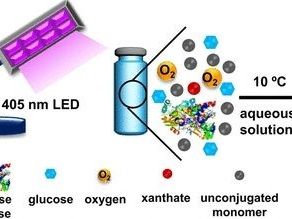BASF extends its leading position in the worldwide polyisobutene sector
New production processes are being developed
Advertisement
BASF is extending its position as the world's leading manufacturer of low, medium and high molecular weight polyisobutene (PIB). The main focus of this activity is on increasing capacity for the production of medium molecular weight polyisobutene, which is marketed by BASF under the trade name Oppanol®.
BASF will gradually increase the capacity of its Oppanol® plant in Ludwigshafen (Germany) by 20 percent. Work began on extending production eighteen months ago, and it is expected to be completed by the end of 2004. Further investment in Oppanol® is planned, and new, more efficient technologies for manufacturing this range of products are being developed.
BASF manufactures a wide range of polyisobutenes in four plants at its Antwerp (Belgium) and Ludwigshafen (Germany) sites. These plants produce a total of 100 000 tons/year of polyisobutene, and production is running at full capacity. All four plants are completely integrated in the production network at the two largest BASF production sites.
"We are reacting to the increasing demand for PIB on the world market, so that we can fulfil the requirements of our customers", said Dr. Ulrich Eichenauer of BASF's Performance Chemicals division, who is responsible for the strategic marketing and development of PIB products. "We are also acting to ensure our long-term competitiveness in a market that has undergone substantial consolidation in recent years".
BASF supplies polyisobutene for many different applications ranging from fuel and lubricant additives, industrial lubricants, two-stroke engine fuel, adhesives and sealants through to plastics and chewing gum.
New manufacturing processes
BASF has set up a global technology platform for polyisobutene in Ludwigshafen in order to continuously improve and develop its Oppanol® (medium and high molecular weight PIB) and Glissopal® (low molecular weight, highly reactive PIB) products and the processes that are used to manufacture them. By concentrating its expertise, BASF has been able to progressively improve the production process for the Oppanol® and Glissopal® types in close cooperation with the market.
The production of PIB is a core competency of BASF, and new products are being developed on the basis of a new living cationic polymerization process. Oppanol® IBS has properties very similar to the other products in the Oppanol® range, and in addition can be processed like a thermoplastic polymer. Oppanol® IBS will be presented to a broad public in October 2004 at the world's largest trade fair for the plastics industry in Düsseldorf. Another example of BASF's new developments is Oppanol® BV, which is used as a starting material in the synthesis of products for a wide variety of applications.
Other news from the department manufacturing
Most read news
More news from our other portals
See the theme worlds for related content
Topic world Synthesis
Chemical synthesis is at the heart of modern chemistry and enables the targeted production of molecules with specific properties. By combining starting materials in defined reaction conditions, chemists can create a wide range of compounds, from simple molecules to complex active ingredients.

Topic world Synthesis
Chemical synthesis is at the heart of modern chemistry and enables the targeted production of molecules with specific properties. By combining starting materials in defined reaction conditions, chemists can create a wide range of compounds, from simple molecules to complex active ingredients.


































































